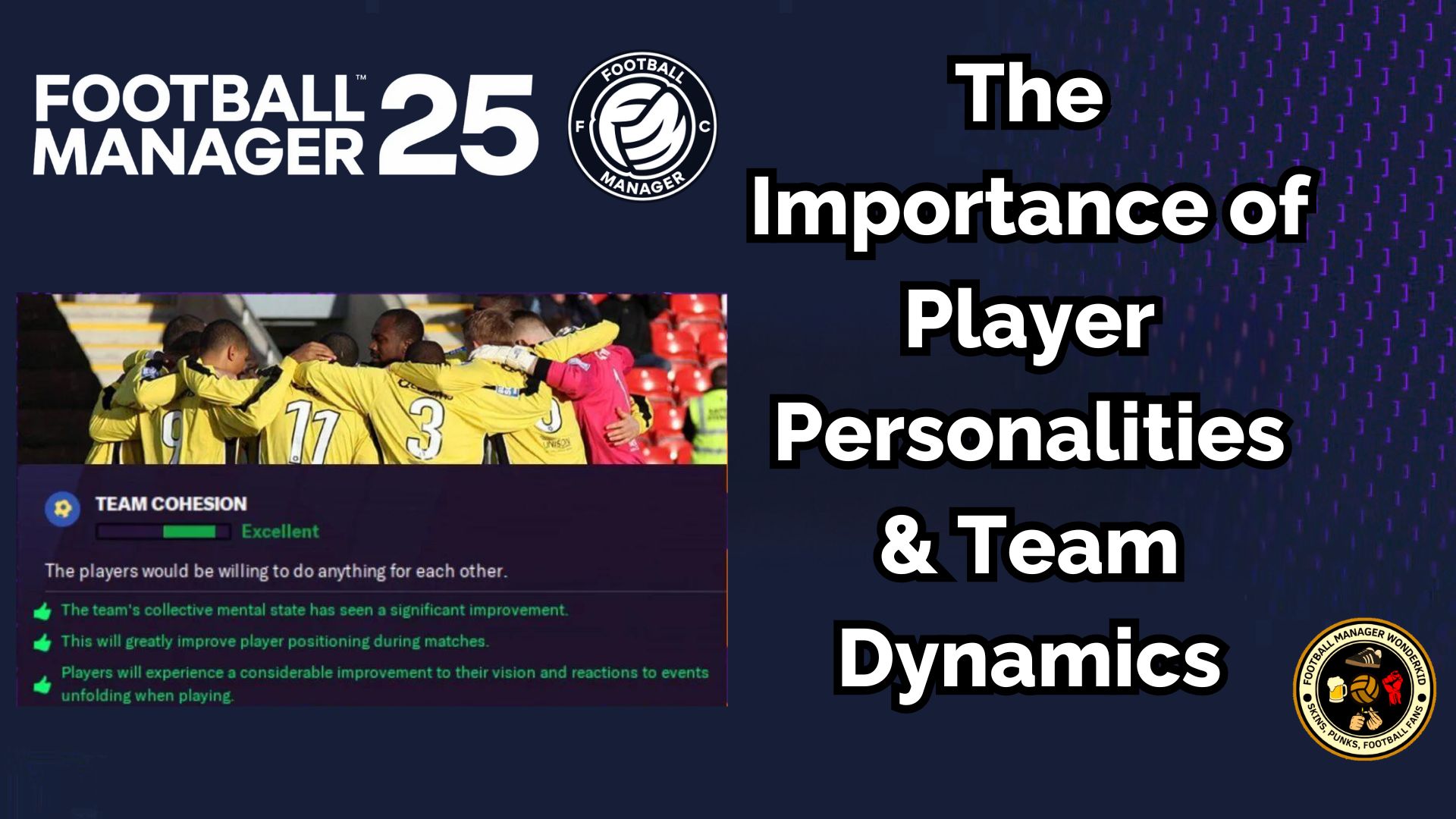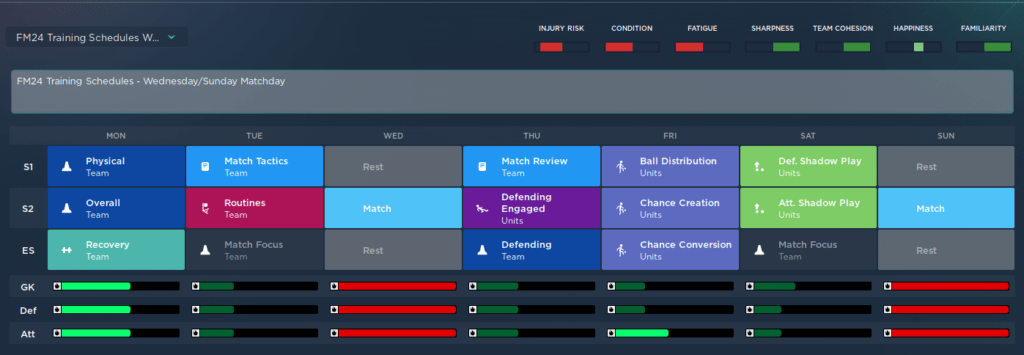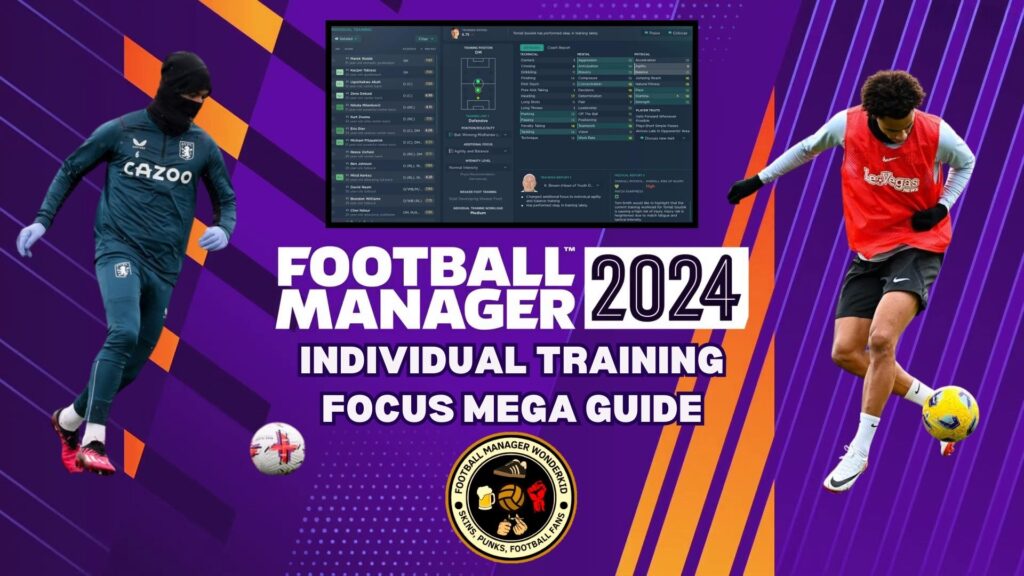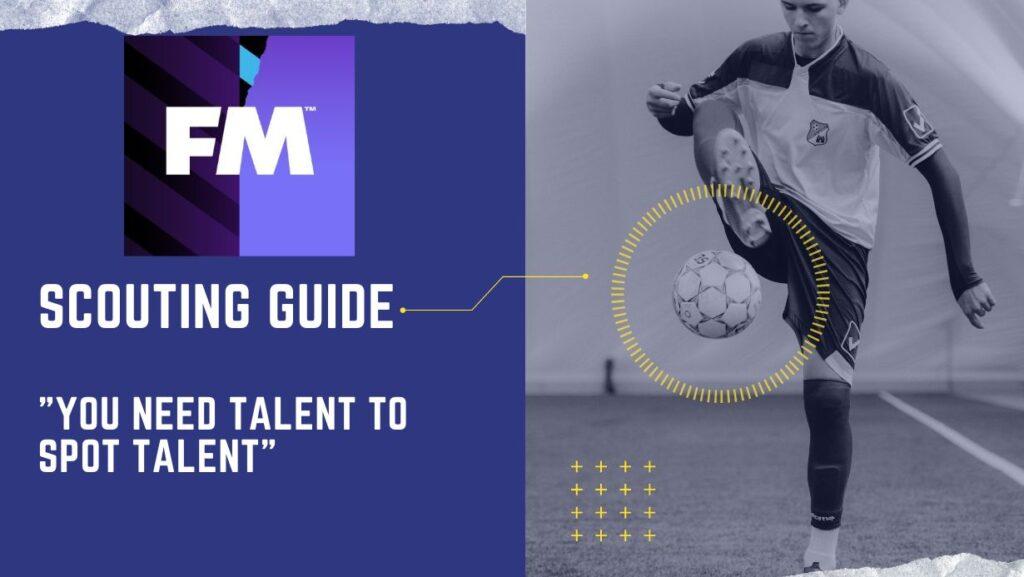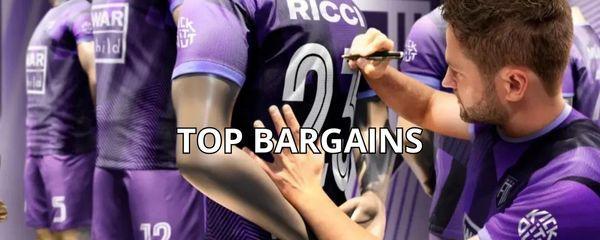Managing the different player personalities is a crucial aspect of the game, as it can significantly impact team performance and harmony. We will present and answer 12 of the most frequently asked questions about handling player personalities and team dynamics features in the Football Manager video game.
Team Cohesion – Encouraging Team Building and Camaraderie
Team Cohesion Training: Fostering team building and camaraderie can boost team morale and cohesion. Organize team-building activities outside of football to strengthen bonds between players.
Acknowledge players’ efforts and celebrate team achievements together. Encourage mutual support and respect within the squad.
If their grievances are unresolvable, consider transferring them to maintain squad harmony.
Handling Player Happiness and Morale
Talk to Player: Player morale significantly impacts team performance. Praise players for good performances and offer encouragement during difficult times.
Consider individual player meetings to address any personal issues affecting their morale. Winning matches and achieving team objectives can positively impact overall squad happiness.
FM Team Dynamics and Player Personalities Matrix
| Player Personality | Team Cohesion Impact | Conflict Potential | Performance Influence |
|---|---|---|---|
| Leader | High (Boosts morale) | Low (Keeps harmony) | Strong Performance |
| Perfectionist | Moderate (Motivates others) | Medium (High standards) | Very High (Consistent) |
| Resolute | High (Encourages teamwork) | Low (Focuses on goals) | High (Determined to improve) |
| Temperamental | Low (Disruptive behavior) | High (Frequent clashes) | Unpredictable |
| Driven | Moderate (Inspires teammates) | Low (Focused on success) | High (Pushes boundaries) |
| Light-Hearted | Moderate (Keeps team relaxed) | Low (Easygoing) | Average Performance |
| Lazy | Very Low (Demotivates team) | Medium (Causes frustration) | Low (Inconsistent) |
| Ambitious | High (Elevates standards) | Medium (Wants more responsibility) | Very High (Thrives under pressure) |
| Unambitious | Low (Drains motivation) | Medium (Passive attitude) | Low (Poor match consistency) |
Conflict Potential: Likelihood of causing disputes.
Performance Influence: Effect on individual and team performance.
Importance of FM Team Dynamics: How do I Motivate Underperforming Players?
Motivating underperforming players is essential to get the best out of your team. Firstly, identify the cause of their poor performances, such as lack of match fitness or low morale.
Communicate with the player one-on-one and set realistic performance targets. Utilize team talks before and after matches to praise their strengths and encourage improvement.
Additionally, offering them more playing time or rest when needed can boost their motivation.
High Team Dynamics – Dealing with Ego Clashes
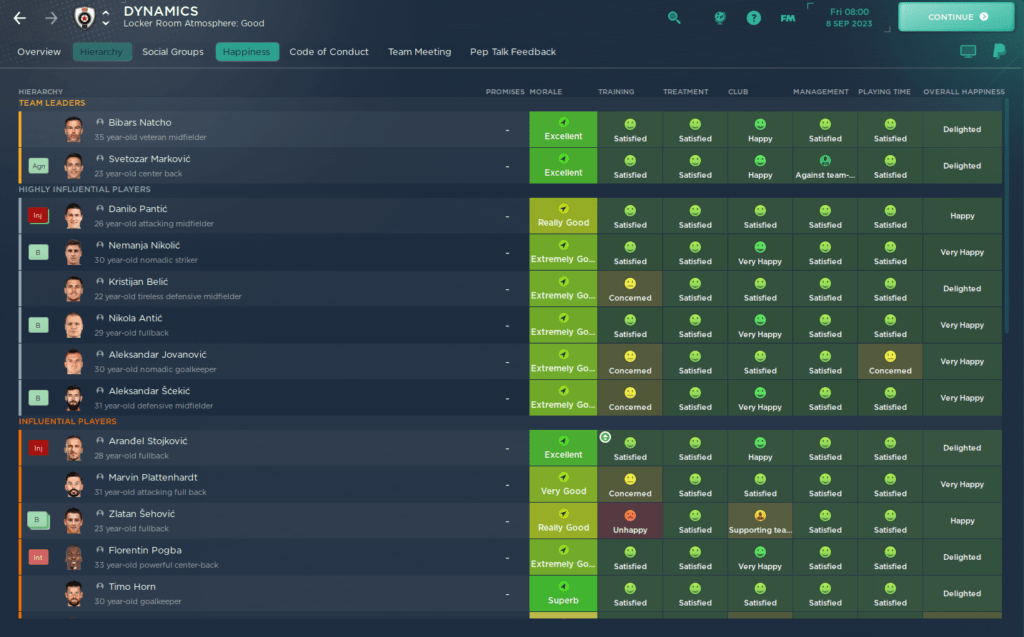
In Football Manager, ego clashes between players can disrupt team harmony. To manage this, focus on building a positive team atmosphere. Encourage players to resolve conflicts privately and maintain open communication channels.
As a manager, remain neutral and fair when dealing with disputes, and avoid taking sides. Consider rotating the team’s leadership responsibilities to distribute influence evenly.
Leadership – Balancing the Needs of Star Players and Team Chemistry
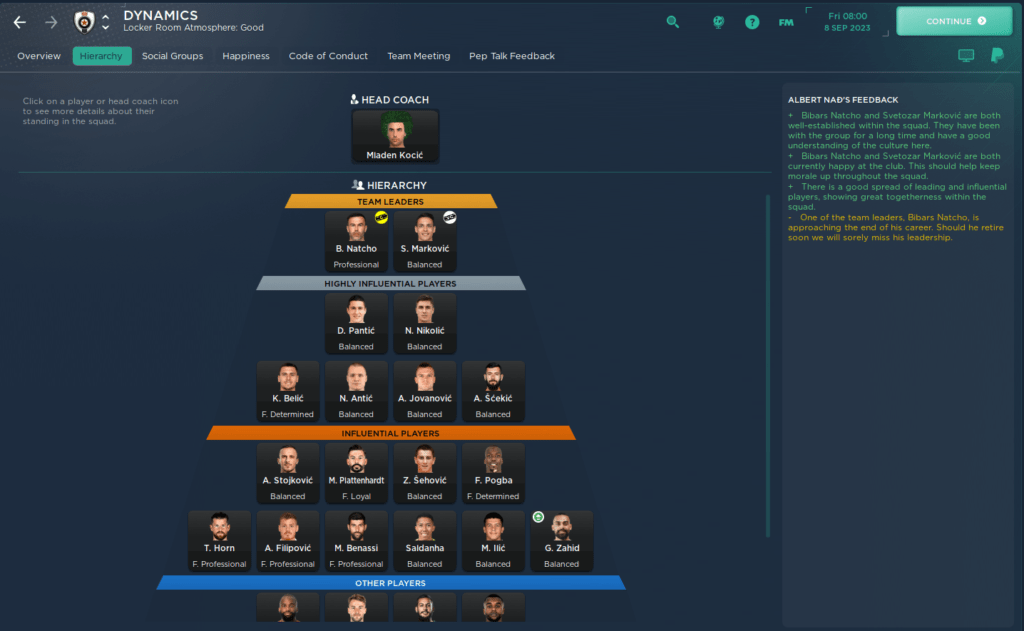
Having star players in the squad can be a double-edged sword. While their brilliance can win games, it may disrupt team chemistry if other players feel overshadowed.
Balance the tactical approach to accommodate the strengths of star players while nurturing cohesive FM25 team dynamics. Encourage star players to lead by example and involve other teammates in the game.
FM Team Cohesion – Handling Player Demands for Transfers
Players might request transfers for various reasons, including lack of playing time or seeking a new challenge. Evaluate the player’s importance to the team and their potential replacement options.
If the transfer request is reasonable, negotiate for a fair deal that benefits both the player and the club. Transparently communicate your decision to the squad to avoid unrest.
Balancing Player Rotation and Match Fitness
Advanced Football Manager Team Dynamics Dashboard
Media Interactions Impact
Player Agent Influence
Fixture Congestion
Key Team Dynamics Factors
- Player morale and motivation
- Squad harmony and chemistry
- Training intensity and schedule
- Tactical familiarity
- Team leadership and hierarchy
Maintaining player fitness is crucial to avoid injuries and fatigue during the season. Rotate your squad regularly, especially during a congested fixture list.
Utilize the depth of your squad effectively, ensuring players are match-fit when needed. Use training and rest options to manage individual player workloads and monitor their condition regularly.
Addressing Player Unhappiness and Discontent
Unhappy players can negatively affect team dynamics on FM24 and FM25. Regularly check the squad dynamics screen to identify discontented players. Meet with unhappy players to understand their concerns and explore potential solutions.
Dealing with Player Dissatisfaction over Playing Time
Players who feel they are not getting enough playing time can become discontented. As a manager, communicate openly with such players and explain your squad rotation strategy.
Provide assurances that they will have opportunities to prove themselves in important matches. If their demands persist, consider loaning them to another club to gain more playing time.
Handling Player Development and Regression
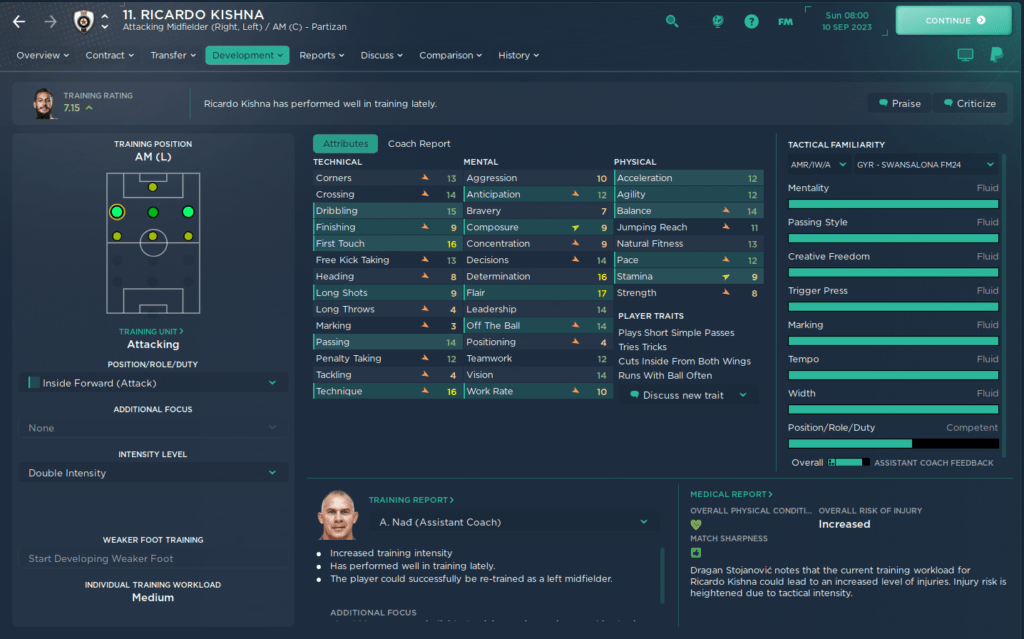
Understanding player development is vital for long-term success in Football Manager. Provide tailored training regimes to improve players’ weaker attributes and enhance their strengths.
Keep an eye on players’ ages, as some may experience a decline in their abilities over time. Plan for the future by scouting and recruiting young talents with high potential.
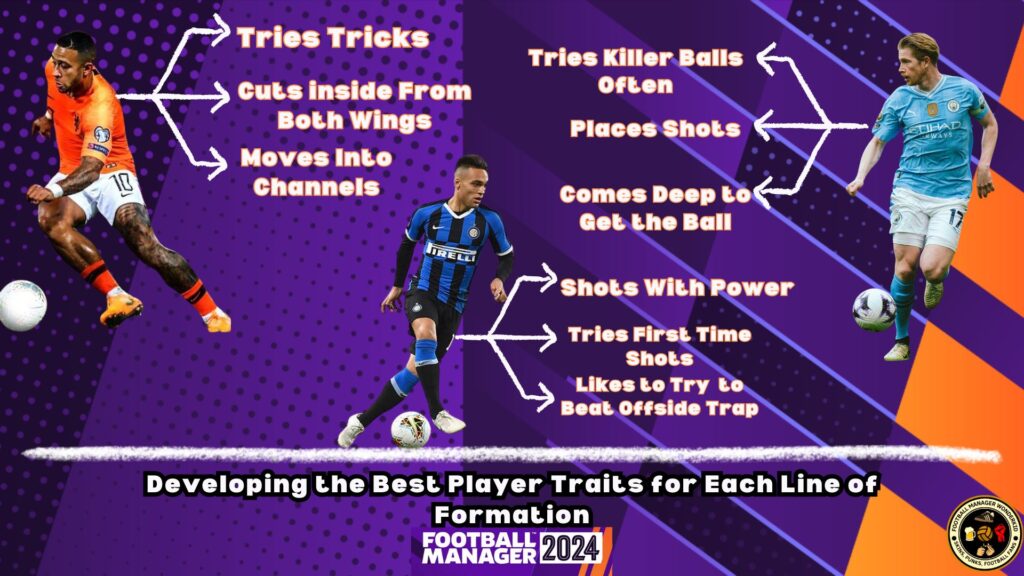
How to Handle Young Players with Potential
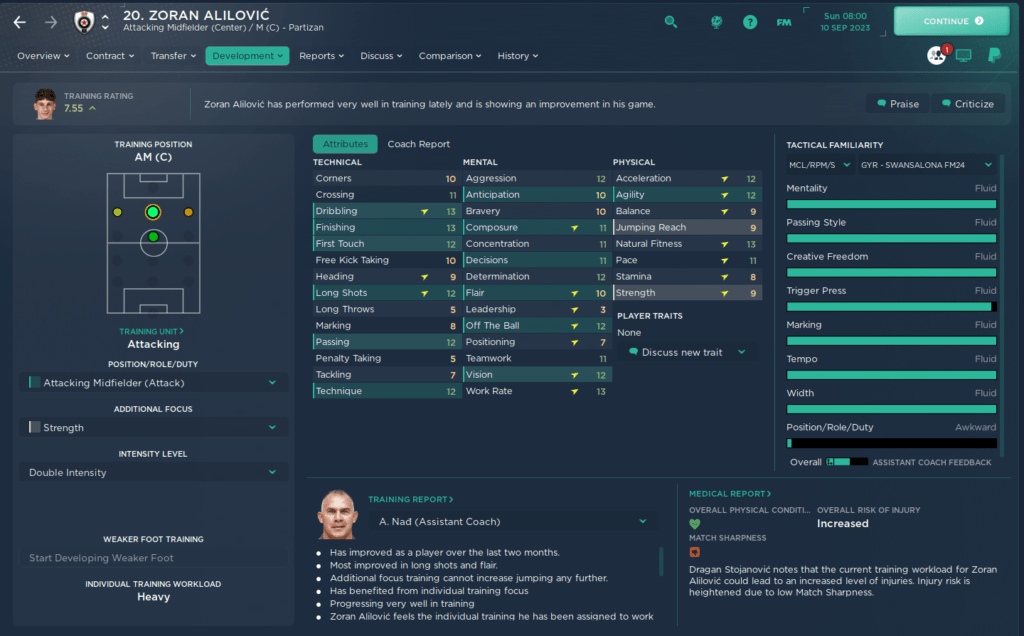
Developing young players is an integral part of long-term success in Football Manager. Encourage young talents to play in cup matches or less critical fixtures.
Loaning them to lower-league clubs can provide valuable experience. Provide guidance and mentorship from senior players to help them reach their potential.
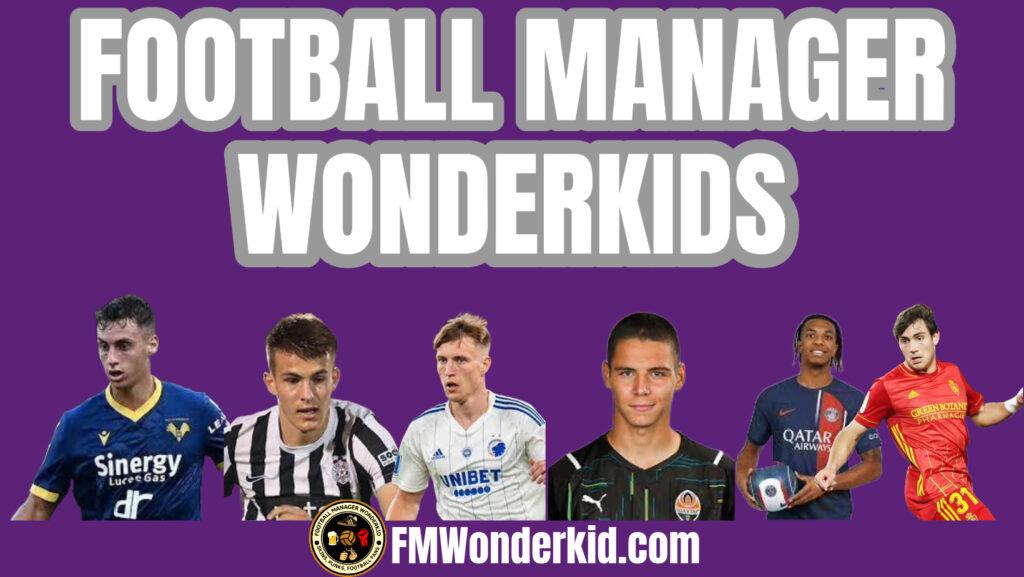
How to Manage Player Contracts
Managing player contracts is vital for long-term squad stability. Keep track of contract expiry dates and initiate contract renewal talks in advance.
Offer contracts based on a player’s performance and value to the team. Be prepared to negotiate and make tough decisions if a player’s demands are excessive or if their performance declines.
Managing Players with Expiring Contracts
Players with expiring contracts pose a unique challenge as they might leave the club on a free transfer. Keep track of contract expiry dates and initiate contract renewal talks early. If a player insists on leaving, consider selling them during the transfer window to avoid losing them for free.
Dealing with Player Retirement
Player retirement is an inevitable aspect of Football Manager. Plan for the future by scouting replacements and nurturing young talents. Offer retiring players coaching or scouting roles if they have the required attributes. Celebrate their contributions to the club and honor their careers during farewell ceremonies.
Team Dynamics – Handling Player Fatigue and Injuries
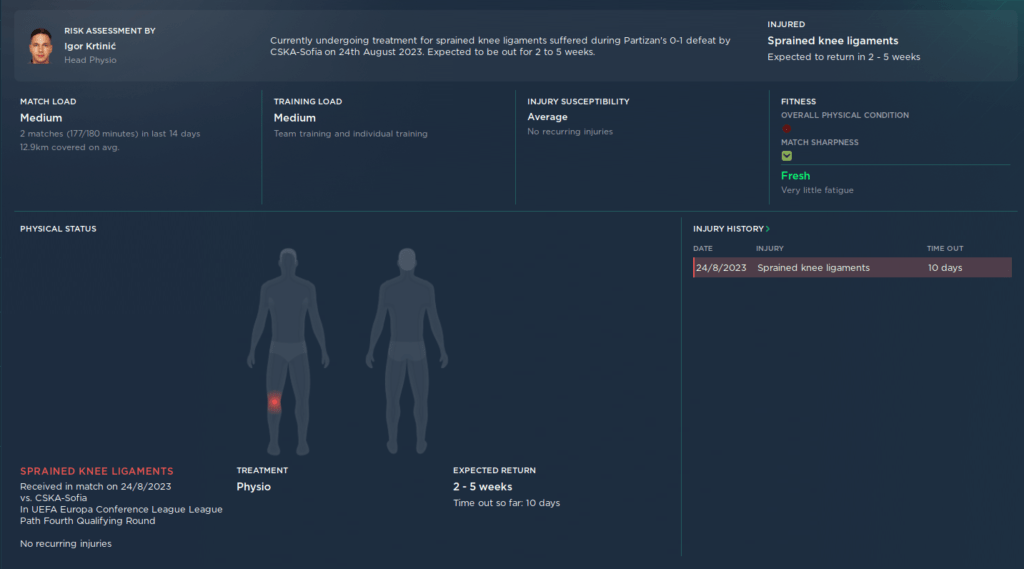
In Football Manager, player fatigue and injuries can significantly impact team performance. To manage this, carefully plan your training schedules, ensuring players get adequate rest between matches.
Use sports scientists’ advice to determine the optimal training load for each player. Monitor player fitness levels regularly and consider rotating the squad to prevent overexertion and reduce the risk of injuries.
Read More: Pre-Season Training Schedules: Football Manager Ultimate Guide
Full FM24 Medical Center Staff Guide + Download
Team Dynamics -Addressing Player Indiscipline
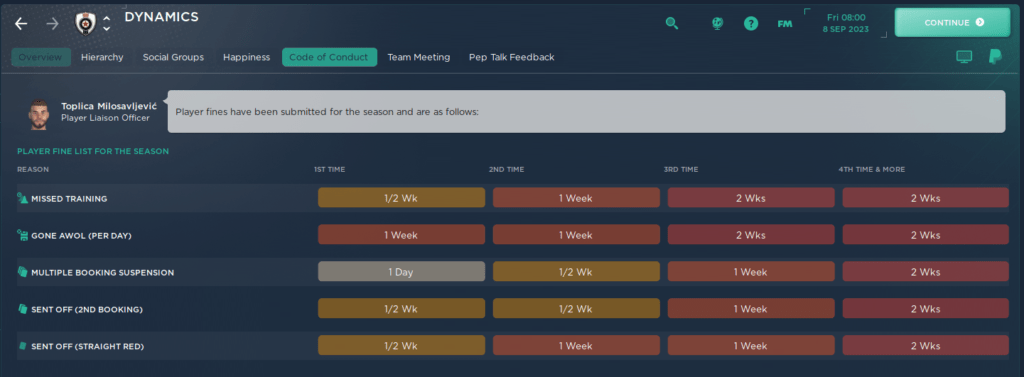
Player indiscipline can disrupt team dynamics and lead to disciplinary issues on and off the pitch. Establish clear rules and expectations for player behavior and hold all players accountable.
Impose appropriate fines or suspensions for serious breaches of conduct. Consistency and fairness are crucial in maintaining discipline within the squad.
Managing Player Relationships with the Media
Player interactions with the media can impact team dynamics and morale. Educate your players on how to handle media interviews professionally.
Praise players for handling media interactions well and address any negative incidents privately. Keep the squad informed about media-related policies to avoid unnecessary distractions.
Dealing with Player Agent Influence
Player agents can sometimes complicate contract negotiations and player transfers. Maintain a professional relationship with agents while prioritizing the club’s interests.
Avoid making promises that are difficult to keep and negotiate contracts wisely. If necessary, involve the club’s board in sensitive negotiations.
Handling International Duty and Fixture Congestion
International fixtures and fixture congestion can create challenges for club managers. Plan and prepare for periods with multiple matches by rotating the squad intelligently.
Communicate with national team managers to ensure players’ workloads are managed effectively during international breaks.
The Power of FM Player Personalities & Team Dynamics
The Power of FM Player Personalities & Team Dynamics
Key Management Skills
- S Strategic thinking
- P People skills
- A Adaptability
Management Approach
Influence of Decisions
Team Dynamics Factors
- Player personalities
- Team cohesion
- On-pitch performance
- Off-pitch interactions
Effectively managing team dynamics and player personalities in Football Manager requires a combination of strategic thinking, people skills, and adaptability.
By addressing the various challenges that arise during your managerial journey, you can build a cohesive and successful team that conquers the virtual football world.
Remember, every decision you make influences not only the team’s performance on the pitch but also the harmony within the squad.
As a football manager, you hold the key to unlocking your team’s full potential and leading them to glory.

